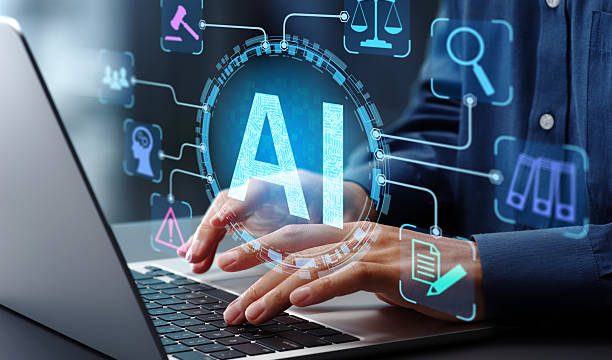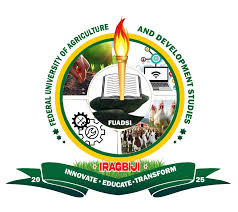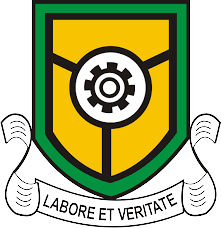
Artificial Intelligence (AI) is transforming the world at an incredible pace — reshaping industries, redefining job roles, and creating new opportunities for innovation. From self-driving cars to personalized healthcare, AI is behind many of today’s most exciting technological breakthroughs.
As businesses continue to integrate AI into their operations, the demand for professionals with AI-related skills has skyrocketed. Whether you’re a student exploring career options or a tech enthusiast looking to specialize, understanding AI career paths can help you choose a rewarding future.
In this article, we’ll explore 40 careers related to Artificial Intelligence, their roles, and why they matter in today’s digital economy.
1. Artificial Intelligence Engineer
AI engineers design and develop intelligent systems capable of performing human-like tasks such as reasoning, learning, and decision-making. They use machine learning, deep learning, and data science tools to create AI applications.
2. Machine Learning Engineer
Machine learning engineers build algorithms that allow computers to learn from data without being explicitly programmed. They work on predictive models used in recommendation systems, fraud detection, and image recognition.
3. Data Scientist
Data scientists analyze complex data to uncover patterns and insights that help organizations make data-driven decisions. They use AI tools and statistical models to interpret and visualize data.
4. Deep Learning Specialist
Deep learning experts design neural networks that mimic the human brain, enabling systems to recognize patterns in speech, images, and natural language.
5. Computer Vision Engineer
Computer vision engineers develop systems that enable computers to interpret visual data — used in self-driving cars, surveillance, facial recognition, and healthcare imaging.
6. Natural Language Processing (NLP) Engineer
NLP engineers create systems that understand and process human language, such as chatbots, voice assistants, and language translation tools.
7. Robotics Engineer
Robotics engineers build intelligent robots that perform automated tasks in industries such as manufacturing, medicine, and logistics using AI and machine learning.
8. AI Research Scientist
AI research scientists explore new algorithms and models to advance the field of artificial intelligence. They work in research labs, universities, or technology companies.
9. AI Product Manager
AI product managers oversee the development of AI-based products. They bridge the gap between data scientists, developers, and business stakeholders.
10. Data Engineer
Data engineers build and maintain data pipelines that feed information into AI and machine learning systems, ensuring smooth data flow and quality.
11. Business Intelligence (BI) Developer
BI developers design AI-powered dashboards and analytics tools that help businesses make strategic decisions using real-time data insights.
12. AI Software Developer
These developers integrate AI features into existing software or create entirely new AI-based applications such as recommendation engines or voice assistants.
13. Algorithm Engineer
Algorithm engineers design mathematical models and computational processes that form the foundation of AI and machine learning applications.
14. AI Solutions Architect
AI architects design the overall architecture of AI solutions, integrating hardware, software, and cloud platforms to achieve desired outcomes.
15. Computational Linguist
Computational linguists work on improving how computers understand human language, enhancing applications like voice recognition and machine translation.
16. AI Ethics Specialist
AI ethics specialists ensure that AI systems are designed and used responsibly, addressing issues like bias, fairness, and transparency.
17. Cloud AI Engineer
Cloud AI engineers deploy and manage AI models on cloud platforms such as AWS, Google Cloud, or Microsoft Azure, optimizing scalability and performance.
18. Predictive Analytics Expert
Predictive analytics professionals use AI and machine learning to forecast future trends, customer behaviors, and business outcomes.
19. Speech Recognition Engineer
These engineers develop AI systems that convert spoken language into text, enabling technologies like Siri, Alexa, and Google Assistant.
20. AI Trainer
AI trainers teach AI models to recognize objects, language, or emotions by feeding them labeled data and continuously improving their accuracy.
21. Big Data Analyst
Big data analysts process massive datasets using AI tools to extract actionable insights for decision-making and business optimization.
22. Computer Scientist (AI Focus)
AI-focused computer scientists research and create computing systems capable of solving complex problems efficiently.
23. Automation Engineer
Automation engineers use AI to design systems that perform repetitive tasks automatically, increasing efficiency in industries like manufacturing and IT.
24. Cognitive Computing Specialist
Cognitive computing specialists build systems that simulate human thought processes, such as reasoning, learning, and problem-solving.
25. AI Application Developer
These developers create AI-based mobile or web applications that enhance user experiences through personalization and automation.
26. Human-Computer Interaction (HCI) Specialist
HCI specialists design interfaces that improve the way humans interact with AI systems and digital technologies.
27. Reinforcement Learning Engineer
Reinforcement learning engineers develop algorithms that allow AI agents to learn by trial and error, often used in robotics and game development.
28. Data Visualization Specialist
They use AI-powered visualization tools to create charts and dashboards that help organizations understand complex datasets easily.
29. AI Operations (AIOps) Engineer
AIOps engineers apply AI to automate IT operations, detect issues, and optimize system performance in real-time.
30. Edge AI Engineer
Edge AI engineers work on deploying AI models directly on devices (like smartphones and IoT devices) to enable faster and offline processing.
31. Biomedical AI Engineer
Biomedical AI engineers use artificial intelligence to improve diagnostics, drug discovery, and personalized medicine.
32. AI Hardware Engineer
AI hardware engineers design specialized chips (like GPUs and TPUs) that accelerate machine learning computations.
33. AI Game Developer
These developers integrate AI into video games, creating intelligent NPCs (non-player characters) and adaptive gameplay experiences.
34. Data Annotation Specialist
Data annotation specialists label images, text, and videos to train AI models for tasks like object detection and language understanding.
35. Chatbot Developer
Chatbot developers build AI-powered chat systems that handle customer service inquiries, marketing, and online interactions.
36. AI Systems Administrator
They manage and maintain servers and systems that host AI applications, ensuring security and performance.
37. AI Business Analyst
AI business analysts analyze business needs and determine how AI can optimize operations, reduce costs, and enhance customer experience.
38. AI Policy Advisor
AI policy advisors help governments and organizations create ethical and regulatory frameworks for the safe use of artificial intelligence.
39. AI Content Specialist
AI content specialists use artificial intelligence to create, optimize, and analyze digital content for marketing or educational purposes.
40. Quantum Machine Learning Researcher
These researchers work at the cutting edge of AI and quantum computing, developing algorithms that leverage quantum mechanics for faster data processing.
Essential Skills for AI-Related Careers
To thrive in artificial intelligence careers, you should develop the following skills:
- Strong programming skills (Python, R, Java, or C++)
- Understanding of machine learning algorithms and frameworks (TensorFlow, PyTorch)
- Knowledge of data structures and cloud computing
- Statistical analysis and data visualization
- Critical thinking and problem-solving
- Knowledge of AI ethics and data privacy
Conclusion
Artificial Intelligence is more than a buzzword — it’s the backbone of the digital revolution. From healthcare and finance to education and robotics, AI professionals are leading the charge in innovation.
If you’re passionate about technology, problem-solving, and shaping the future, a career in Artificial Intelligence offers limitless opportunities. The key is to start learning, gain hands-on experience, and stay updated with the latest AI trends.
FAQs About Careers Related to Artificial Intelligence
1. Are AI jobs in demand?
Yes. AI-related jobs are among the fastest-growing in the world, with strong demand across industries like tech, healthcare, and finance.
2. Do I need a degree to work in AI?
While a degree in computer science or data science helps, many AI professionals build successful careers through online courses, certifications, and self-learning.
3. What is the highest-paying AI career?
Roles like AI Engineer, Machine Learning Engineer, and AI Research Scientist offer some of the highest salaries in tech.
4. Can beginners get jobs in AI?
Yes. Start with learning Python, data analysis, and machine learning basics, then build projects and earn relevant certifications.
5. Which industries use AI the most?
Industries like healthcare, finance, e-commerce, manufacturing, and entertainment are among the biggest adopters of AI technology.





![FUTES-IYIN Cut Off Mark 2025/2026 is Out [All Courses] FUTES-IYIN Cut Off Mark 2025/2026 is Out [All Courses]](https://myeduplug.com/wp-content/uploads/2025/10/FUTES-IYIN-4.jpeg)
![FUADSI Cut Off Mark 2025/2026 is Out [All Courses] FUADSI Cut Off Mark 2025/2026 is Out [All Courses]](https://myeduplug.com/wp-content/uploads/2025/10/FUADSI-2.jpeg)
![KASU Cut Off Mark 2025/2026 is Out [All Courses] KASU Cut Off Mark 2025/2026 is Out [All Courses]](https://myeduplug.com/wp-content/uploads/2025/07/KASU.jpeg)
![UNIBEN Cut Off Mark 2025/2026 is Out [All Courses] UNIBEN Cut Off Mark 2025/2026 is Out [All Courses]](https://myeduplug.com/wp-content/uploads/2025/03/UNIBEN.jpeg)









